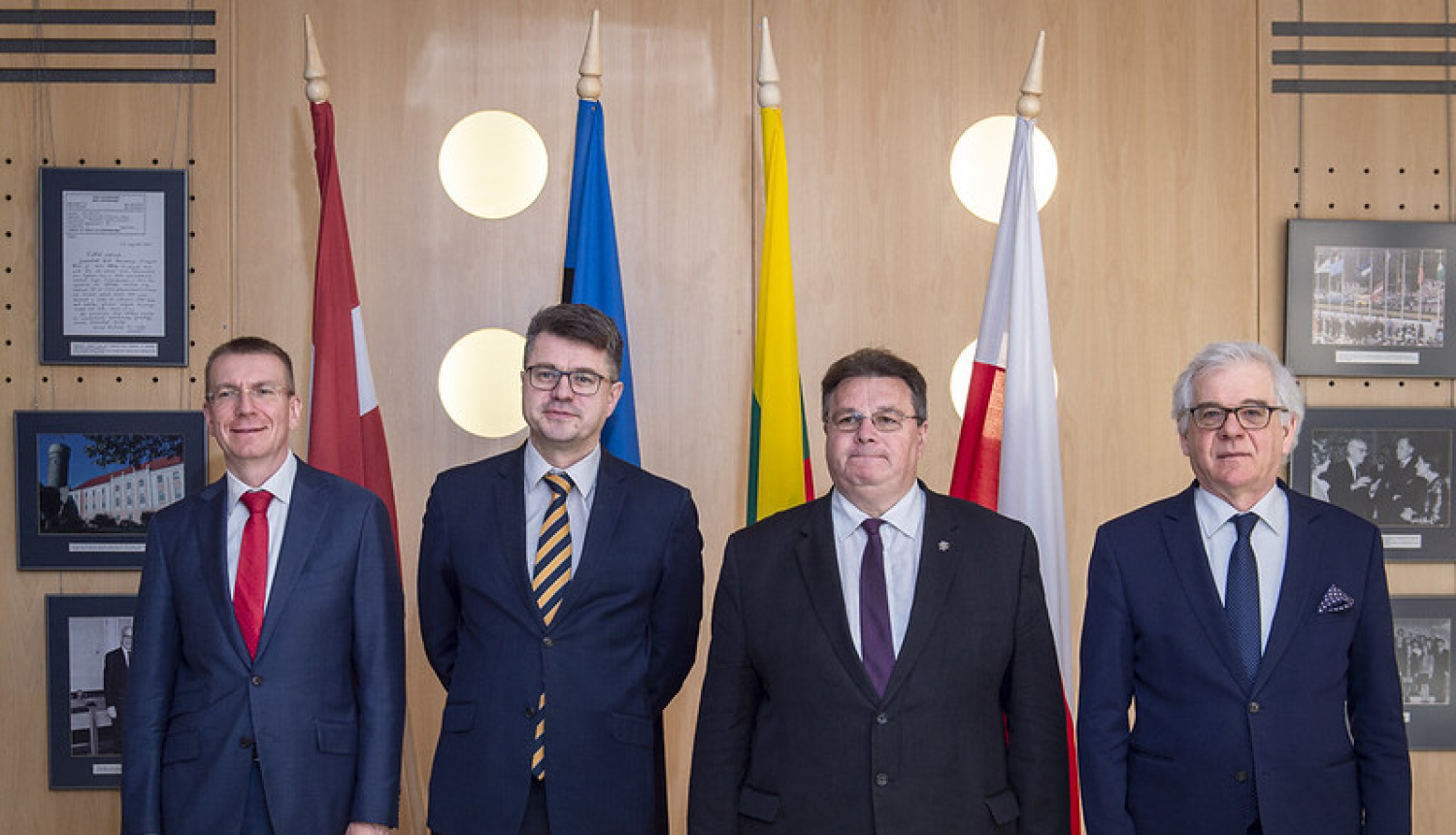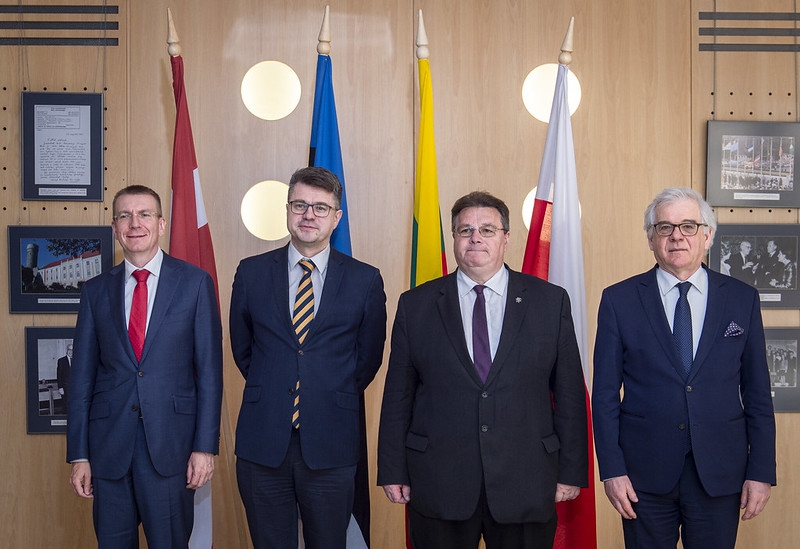By opening a common space for travel between the three Baltic States, our countries are offering a positive example of regional coordination and mutual trust, said Edgars Rinkēvičs at the meeting of the Estonian, Latvian, Lithuanian and Polish Ministers of Foreign Affairs held in Tallinn today. The Latvian Foreign Minister noted that the opening of internal borders for transport between the Baltic States represents the start of addressing the consequences of restrictions related to COVID-19.
According to Minister Rinkēvičs, in the context of COVID-19, it is important to ensure effective coordination between the region’s countries towards removal of restrictions and their harmonisation across the region as well as potentially in Poland and the nearest European countries.
Opportunities offered by infrastructure projects, for instance, Rail Baltica, should be used to stimulate regional cooperation in business and trade. In this context, it is important to move ahead with cooperation with Poland and other international partners in order to successfully implement the project.
The Ministers were unanimous about the need for reaching an agreement on the EU’s Multiannual Financial Framework and on the Roadmap for Recovery to facilitate a successful emergence of EU economies from the crisis. Edgars Rinkēvičs noted that, at the same time, it is essential to strengthen the EU’s Single Market through providing additional support for the development of the “green” and digital economies.
Close cooperation between the Baltic States and Poland is vital for ensuring a strong collective defence in the region, the Latvian Foreign Minister underlined. Latvia highly values Poland’s substantial contribution to the NATO’s enhanced Forward Presence battle group deployed in Latvia.
The meeting of the Baltic and Polish Foreign Ministers also addressed regional security matters, the latest EU developments, the Eastern Partnership policy, cooperation in the Three Seas Initiative, and the geopolitical influence of COVID-19 worldwide.
A Joint Statement was adopted at the conclusion of the meeting.





